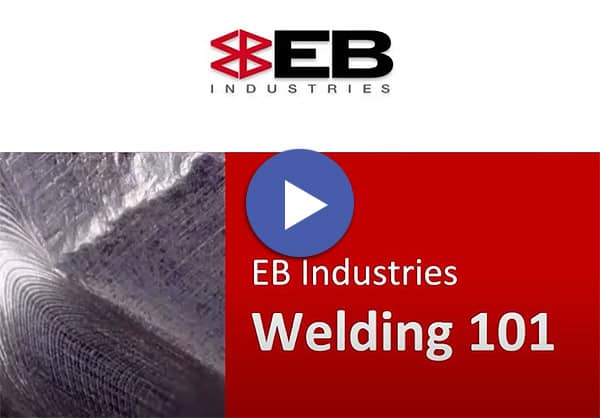Without strong, quality welds, your part will fall apart. Problems with welds can lead to failures in the field, reworking, additional costs, and damage to your company’s reputation.
Considering how critical welds are, how much thought are you putting into welding and who is doing that welding for you?
In this guide, we’ll break down choosing a welding vendor and give you a framework to help make decisions that fit all aspects of your requirements, from quality, to expedience, to price.
Questions About Quality
Everything revolves around quality. Quality dictates development time, manufacturing time and price.
The quality level that is appropriate to your project is established, of course, by the project requirements but, depending on your industry, there might be standards and certifications that have to be met.
 |
WebinarWelding 101 Precision Welding Tips for Electron Beam, Laser Welding and Laser Hermetic Sealing |
Here are some questions that might come up as you work through your project:
1 – What are their certifications and are they applicable to my particular project?
In aerospace, ISO 9001:2015/AS9100D and NADCAP accreditation is a sign your vendor has made a serious commitment to developing procedures to assure quality control throughout its entire process. These particular standards ensure that every step of your part’s progress—from coming in the door through preparation. processing, inspection, testing and final packaging—has standards and procedures that have to be met. A welding provider meeting these Aerospace standards can rightly be considered at the top echelon of the industry.
ISO 13485:2016 is a similar accreditation for medical device manufacturers and, like the aerospace certification, it too controls a myriad of details that ensure your part is handled properly throughout its processing.
Another thing to realize about these standards is that they also establish protocols for documentation, communication and, to a large extent, customer service. A company, certified to these standards, operates on another level everyday, and if they don’t, they lose that certification.
Even if your project doesn’t require high-tech industry standards, a company that has an ISO 9001:2015/AS9100D or ISO 13485:16 process in place is basically treating everything coming in the door as if it’s going into a spaceship or someone’s chest cavity, even if it’s going in an outboard motor.
2 – Beyond industry certifications — how do they approach quality assurance?
Certifications are only as good as the process by which those certifications are met. A vendor needs to be adept, not only at welding, but at testing and inspection of parts,as well as at machine and facility maintenance, to ensure equipment is working correctly and within tolerances, training and certifying operators, and inspection staff, etc.
3 – Do they meet proprietary standards?
A good indicator of the quality level of a welding provider is the private companies for which they perform work. Yes, government and industry standards are stringent, but often the standards of a high-level company are even tougher. Look for welding vendors that are certified to work with major aerospace OEMs, medical device OEMs, semiconductor OEMs, etc. The process by which a company is certified to work with a Raytheon or a Stryker is grueling, requiring tremendous amounts of reporting, reviews, inspections and documentation.
4 – Documentation and traceability — what sort of system do they have in place if I run into a quality problem?
The unexpected can happen and parts can fail. Figuring out the cause of a failure and implementing steps to mitigate future issues is key to maintaining long-term quality. Your welding vendor should have a system in place such that the evolution of your part can be tracked from door to door, with reportage covering every step through the welding facility.
- Is their documentation electronic or paper-based?
- Does it conform to a standard?
- Is it easily accessible to you?
- Will your vendor respond quickly and responsibly in the event of a problem or incident?

